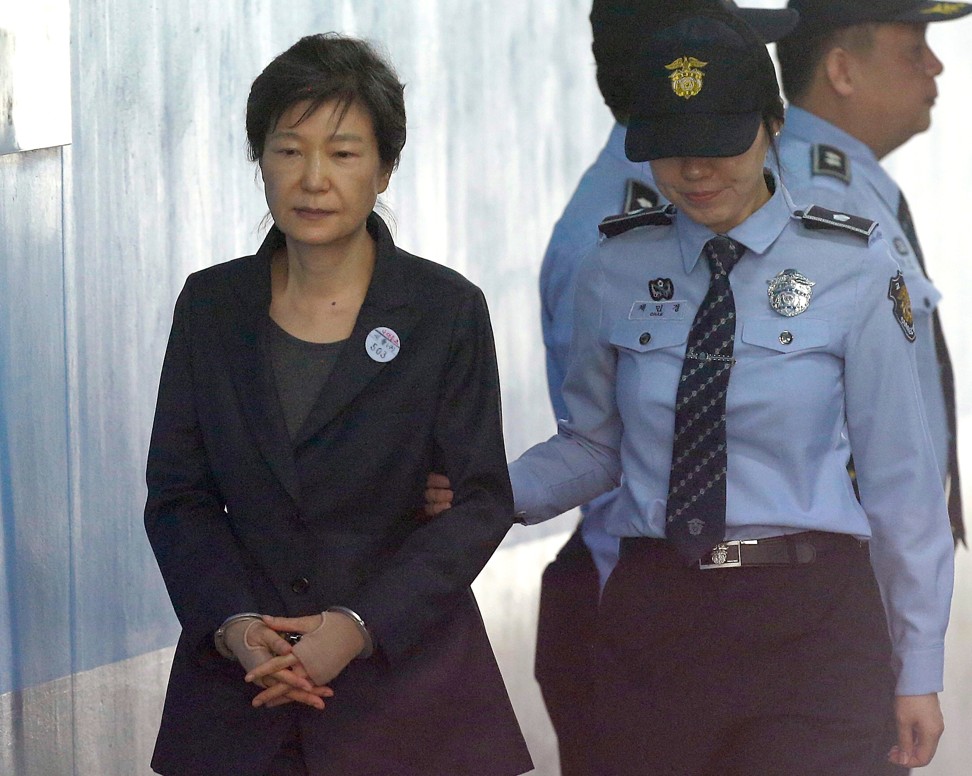
South Korea’s conservative protesters, like Britain’s Brexiteers, reject rule by doctrinaire leftists
- The resounding success of the Tories in Britain has its echoes in Seoul, where hundreds of thousands rebel against Moon
- The two situations have differences, but in both the middle and working classes have grown weary of out-of-touch leftists
Conservatives won 365 of the 650 seats in the Commons, giving them an 80-seat edge over Labour. This is their biggest margin since the era of Margaret Thatcher in the 1980s, enough to be sure Johnson can hold his post for another few years.
The humiliation of leftists in the British elections offers a lesson others are learning worldwide. Look at the US, where the Republican Donald Trump maintains popularity among zealous advocates in the face of impeachment by the Democratic-dominated House of Representatives, condemnation by most leading newspapers and devastating criticism by TV panellists and late-night talk show hosts.
The conservative backlash against liberals and leftists who think they are magically endowed to decree what’s right and wrong extends to South Korea.
For months we have seen the resurgence of grass-roots conservatism rising up against the agenda of President Moon Jae-in and his circle of advisers, many of whom were, like him, once activists. Several hundred-thousand foes of Moon’s left-leaning government gather Saturday afternoons and evenings listening to impassioned speeches calling for his ouster.
The conservative movement in Korea is gaining strength in the run-up to National Assembly elections in April that are sure to provide a true test of popular sentiment.
North Korea is the winner when South Korea and Japan spar
Gradually, more middle-aged and younger people are joining the throngs of older people, many of them military veterans, streaming up the broad avenue past the US embassy to Gyeongbuk Palace, the ancient centre of power.
Rising Korean conservatism bears certain distinct resemblances to Britain’s, notably middle-and-working class voters’ rejection of rigid socialism and Marxism espoused by doctrinaire theoreticians, many of whom have never got their hands dirty working in a factory or on a farm.
There also are crucial differences. One is that, unlike in Britain, the conservatives do not hold power. In Korea, the former conservative president, Park Geun-hye, was impeached, ousted and jailed, leaving the right-of-centre Liberty Korea Party divided and without a well-known charismatic leader.
Just as obvious is that the British do not face a hostile nuclear-armed military power, whereas South Korea remains at odds with North Korea, ruled by a dynastic leader who has no intention of giving up his missiles and warheads.
Britain, however, does face division between North and South. The Scottish National Party, opposed to Brexit and calling for independence, won almost all the Scottish seats in the House of Commons.
That poses a tremendous problem. Most Scots do not want to leave the European Union and the benefits of free trade with other European countries. Johnson will have to deal with Scottish demands for another referendum on independence from Britain.
Boris Johnson’s Britain shows the way for gridlocked Hong Kong
Still, though, the triumph of conservatives in Britain has implications for conservatism everywhere. A majority of voters simply are not fooled by the empty dogma of Marxists and socialists.
As leader of Britain’s Labour Party, Jeremy Corbyn sounds convincing when he campaigns for better schools, better health care and more opportunities for the middle and working classes against wealthy families and interests.
Ultimately, however, Marxism means repression by a ruling elite that winds up enriching itself at the expense of “the masses” for whom it is supposed to fight. That’s a lesson that a majority of Britons showed they have learned – and Koreans are also learning in a mood of disillusionment with empty promises and mounting tensions.
Donald Kirk is the author of three books and numerous articles on Korea


